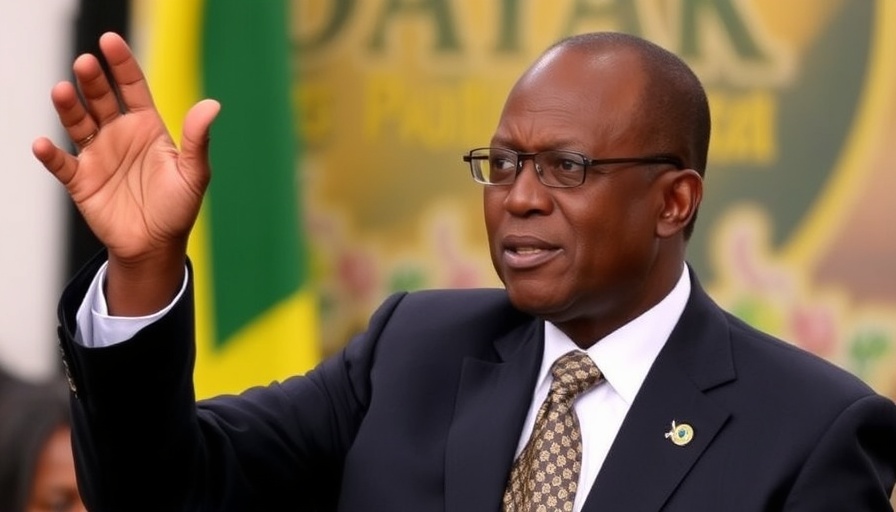
Understanding Museveni's Approach: A Unifier or a Divider?
As President Yoweri Museveni embarks on a campaign for his seventh term, his call for forgiveness and unity hangs in the air, juxtaposing his nearly 40 years in power against the backdrop of Uganda's turbulent political landscape. Taking a conciliatory tone at the recent National Prayer Breakfast, Museveni emphasized healing as crucial for national cohesion. He urged citizens to rise above divisions, reflecting both a tacit acknowledgment of past wrongs and a strategic recalibration ahead of the upcoming 2026 presidential elections.
The Political Landscape: Contextual Insights
Museveni's reign has been marked by significant political strife, particularly during the last general elections, where his main opponent, Bobi Wine, decried widespread voter fraud, claiming military intervention stymied democracy. The juxtaposition of Museveni's current rhetoric with this narrative raises critical questions: Is this genuine outreach, or merely a façade to maintain political power? With past elections mired in allegations of misconduct, Museveni's focus on reconciliation can be viewed as a double-edged sword.
Economic Implications of Political Stability
For business leaders and investors watching Uganda, the stability of Museveni's government—and its ability to foster a conducive environment for economic growth—becomes paramount. Political turmoil affects foreign investments, as seen in investor reservations following the unrest surrounding the previous elections. Museveni’s attempts to project an image of national unity may signal a shift towards policies designed to nurture Uganda’s positioning in global trade despite past criticisms of governance.
The Broader Geopolitical Picture
Analyzing Museveni's reconciliatory approach is essential not just for Uganda, but for Africa’s geopolitical dynamics. His message of unity can influence relations with global powers engaging in Africa, particularly China and the EU, which are vested in stability for trade partnerships. As Museveni seeks to paint a picture of national healing, Africa’s role in global economics may also be enhanced, creating opportunities for collaboration in sectors ranging from digital economies to infrastructural development.
The Role of Forgiveness and Trust in Governance
Museveni's narrative of forgiveness is not new; it harkens back to other major movements across Africa that have aimed at reconciliation. However, actual trust and progress will require substantial actions beyond words. The concept of healing wounds from political discord requires a community effort to rebuild trust, not only from leaders but also from citizens previously disillusioned by the state of governance. The involvement of former opposition figures, like Col. Samson Mande, presents a beacon of hope for collaboration across political divides.
Conclusion: A Call to Reflect on Uganda’s Future
Ultimately, the effectiveness of Museveni's reconciliatory tone will hinge on the realities that emerge from the political campaign trail and the subsequent elections in 2026. Business leaders and policy analysts alike must stay vigilant, assessing whether the advances towards national healing can be transformed into actionable policies that benefit the nation’s economy. Reflecting on Museveni's past, understanding voter sentiments will be vital in shaping the political discourse moving forward, as well as in influencing global perspectives on Uganda.
 Add Row
Add Row  Add
Add 


Write A Comment